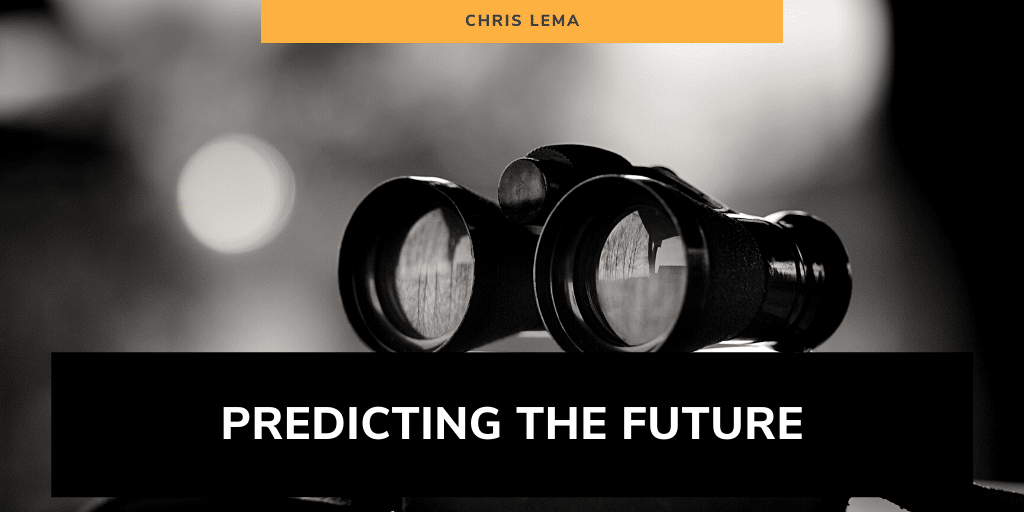
Predicting the Future is Impossible
Predicting the future is impossible and will only highlight how wrong you are. Right? I mean, I'm the guy who said, once on a podcast, that the only thing you could know for certain about what could and couldn't be sold online was mattresses. Boy was I wrong.
There are optimists out there and pessimists out there, but most of us like to be considered realists. And we're the worst. We know just enough to articulate why something can't or likely won't happen.
Who should we be more like? The optimists. Because while they can't explain how something will happen, their hope that it does has borne fruit.
Today I read an article that was titled, “Betting on Unknown Unknowns” and it's brilliant. In fact, all I want to do in today's post, which I haven't done all year, is simply point you to this great article.
In it, the CEO of Scale.com states,
There’s a peculiar thing where oftentimes it’s the wildly optimistic predictions that end up being right. Such predictions seem entirely crazy at the time—it feels like betting on everything going absolutely perfectly. On the contrary, they are betting on “unknown unknowns” which will meaningfully change the game.
Alexandr Wang
While the emphasis is my own, the point is made clear in the rest of the article. And while Alexandr is making a point about Scale, there's more in the article for us than just for the Scale employees.
Three Takeaways from Betting on Unknown Unknowns
Here are the three things that I came away with from that article.
- Just because we can't explain the exact path that the future will take, it doesn't mean optimism is a bad choice. When rationally debating something, the logic goes, “If you can't explain it, you don't get it, and if you don't get it, then your argument fails. And if your argument fails, I can discount your conclusion.” And that's not been proven correct, no matter how much we'd like it to be true.
- Predicting a logical progression of the future, based on where we are now, discounts the unknown and will likely be wrong. Again, it's our rationality that will ground us and betray us at the same time. We would do well to embrace and expect things we can't predict or explain.
- People really bright and people really dumb will often sound the same when talking about the future. Do we like being smart? Or do we like sounding smart? As I read the article, I was challenged to ask myself this particular question. Because sounding smart can often sound pessimistic and being smart may come off sounding really quite similar to being dumb.
Check out the Article
I once told you not to trust your gut. The article I've been telling you about pushes me deeper in that direction.
Be sure to check out the article referenced above, “Betting on Unknown Unknowns,” because I think it will challenge you as much as it challenged me. And I like being challenged. I think you'll enjoy it.
